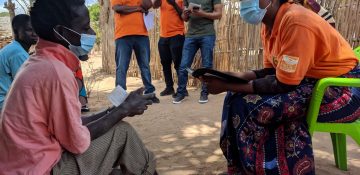Final update
The study was conducted in Erati and Memba district, Nampula province, in collaboration with the Ministry of Health and the Ministry of Gender, Children and Social Action.

“There are rehabilitation services for those that fall and break their leg for example, but not for people that have lymphatic filariasis (LF)”
Information was collected on where persons with leprosy, LF and konzo live, how their disability influences their life and what services and policies are in place. These data are used to improve policies and take up actions to improve the required services. These need to be aligned with needs felt by persons affected themselves.
Data were collected at district level using different (participatory) tools and in-depth interviews were held with policy makers and health staff at national and provincial level. Data collected at district level provided a much information on (lack of) availability of health, rehabilitation and social services and it indicated that persons affected not only have to deal with their physical disability, but are affected in their mental wellbeing, by restrictions in participation and due to stigma. These data, together with the information from in-depth interviews were analysed and further discussed in a meeting with all relevant actors, from national to district level. During this meeting a policy brief and specific action plan were developed.
These two important outcomes of the study give clear guidance and can be used for immediate and more long term improvements for persons affected by these three disabling diseases.
“My parents despised me . . . I moved out and built my own house. Now I live alone and I sleep alone.”